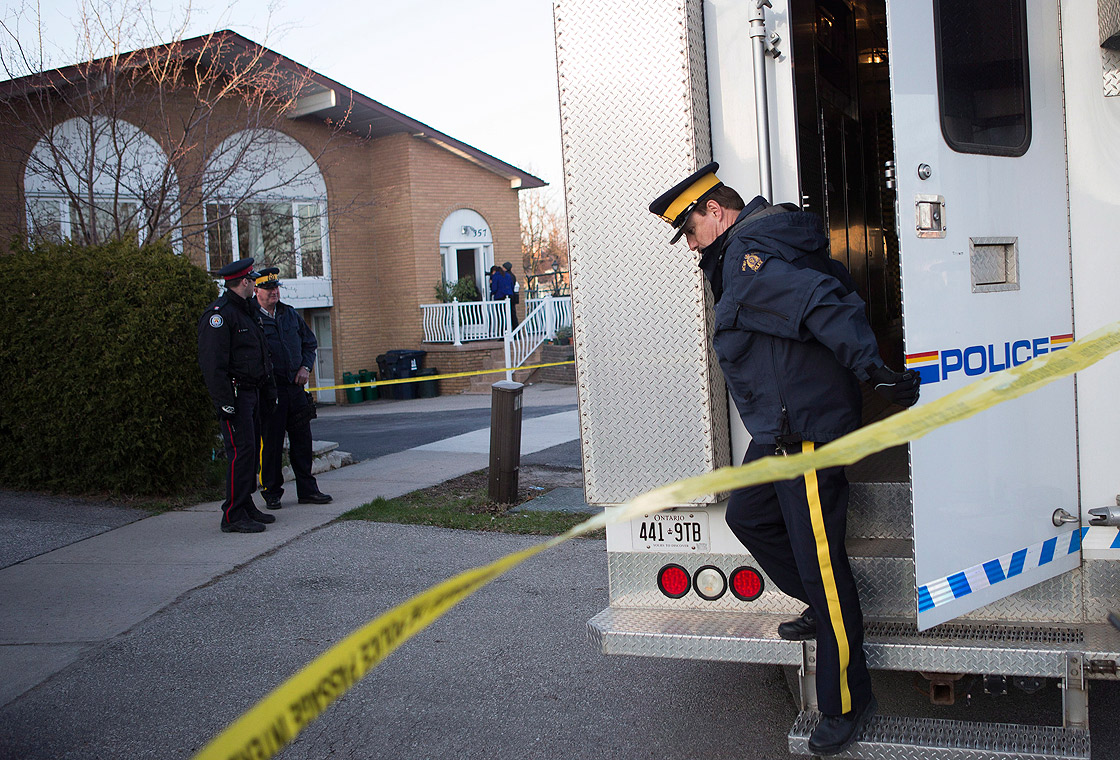OTTAWA – Does Canada need new anti-terrorism laws?

The question loomed a day after two men were arrested and charged with allegedly plotting a terrorist attack on a Via Rail passenger train.
Politicians of all stripes praised the arrests as a success story, as MPs continued to debate a Conservative anti-terrorism bill in the House of Commons.
But critics say the bill revives measures that would curb civil liberties in Canada.
While the Conservatives thanked the RCMP and CSIS after the arrest of Raed Jaser of Toronto and Chiheb Esseghaier of Montreal on Monday, they also said Parliament needs to move quickly to pass Bill S-7, the Combating Terrorism Act.
“It’s needed. We only need to look around at what has happened over the last week,” said Conservative MP Candice Bergen, the parliamentary secretary to the minister of public safety, in an interview with Global News.
“Terrorism remains a threat, not only to different parts of the world, but to Canadians.”
Bergen rejected the suggestion that the Conservatives knew the arrest was coming – and that’s why they brought back the bill after two months had lapsed.
“Absolutely not. There is no connection with the two,” said Bergen.
She said both the RCMP and CSIS officials asked for more tools to combat terrorism, and the government listened.
“They’ve told us they need this. Radicalization of youth that leads to violence is an issue – it’s an issue in Canada and around the world,” she said.
But others, including the lawyer for one of the accused, questioned the timing of the bill – and whether Canada needs new measures at all.
“The timing of the arrest is a bit of a mystery,” said lawyer John Norris, who is representing Jaser in Toronto.
“Certainly I would like to hear the RCMP’s explanation for that. They’ve been very clear there was no risk to public safety, and it’s surprising to say the least, that this arrest would be made now close on the heels of the events in Boston and timed perfectly with what was happening in the House of Commons yesterday,” said Norris.
Bill S-7 brings back two measures first introduced by Jean Chretien’s Liberal government after 9-11, which expired five years ago: preventative detention and investigative hearings.
It would allow police to detain someone without charge for three days, or imprison them for up to 12 months if they refuse to answer questions during a hearing with a judge.
And it makes it a crime to leave the country with the intent of plotting to commit or committing an act of terrorism – such as going to an al-Qaeda training camp.
The Liberals have suggested they will support the bill, which is supposed to go to a vote on Wednesday night. But the NDP is against it, arguing it infringes civil rights and the current law already covers crimes associated with terrorism.
“No one has shown it’s necessary. We’ve done apparently just fine for 12 years,” said NDP public safety critic Randall Garrison, citing the convictions of Mohammad Khawaja, the Toronto 18, and Monday’s arrests.
“All of that would seem to indicate to me that it’s neither a necessity nor an effective tool.”
Garrison said what’s really needed is more resources for police and intelligence investigations – and that the Conservatives have been cutting front-line positions.
He also questioned the timing of the Conservative bill, first introduced in the Senate last February.
“It’s a very big coincidence,” said Garrison.
“Whether or not timing was chosen, there’s clearly an attempt by the government to exploit an atmosphere which would cause people to ask fewer questions about S-7.”
Paul Calarco, a Toronto defence lawyer and member of the Canadian Bar Association’s criminal justice section, who testified at House of Commons committee about the bill, said he does not believe it adds anything useful to criminal law.
“What you need to deal with this situation is dedicated police work. You need information sharing between police agencies, and between intelligence services in and outside of Canada, so that people who are going to commit the acts or suspected, can be apprehended,” said Calarco.
“This bill doesn’t do that.”
He said the measures, including investigative hearings, go against Canada’s tradition of being free from state interrogation.
“Canadians have to care about this because the civil rights of those people are the same as the civil rights of any Canadian,” he said.
“And if those suspects’ rights can be infringed upon, so can yours and mine.”
For in-depth coverage of the Train Terror Plot click here.



Comments